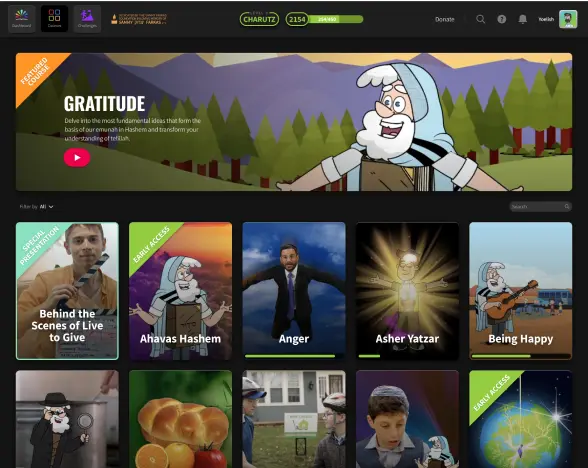Friendship That Lifts Us: How to Be There When It Counts
Introduction:
Have you ever found yourself wondering, “Who would I call first if I was going through a tough time?” Or perhaps you’ve asked, “Who can count on me – not just for a good laugh, but when life gets real?” We all crave genuine connections, especially friends that not only celebrate with us at our best, but stand with us during our hardest moments. Friendship isn’t just about sharing memes or inside jokes; it’s about showing up, supporting, and sometimes challenging each other to grow. Let’s explore how Jewish wisdom and modern psychology both point to the everyday superpower of being a true friend.
The Science and Soul of Lasting Friendship
Modern science is catching up with ancient wisdom: studies show that strong friendships improve our mental and even physical wellbeing. Having support during life’s ups and downs makes us more resilient, less stressed, and more empathetic. But what makes a friendship truly “strong”? The Torah teaches us to “acquire for yourself a friend” (“קנה לך חבר” – Pirkei Avos 1:6). This isn’t about money, but about intention and effort. True friendship, our sages say, means someone is “attached” to you – a support structure in stormy weather and a cheerleader when skies are clear.
A recent psychological study showed that people who help and support others get a “helper’s high” – a rise in happiness hormones, lower blood pressure, and even longer lifespans. Judaism precedes this wisdom: when you strengthen a friend, you’re literally fulfilling, “Love your neighbor as yourself” (Leviticus 19:18) – and you both come away stronger.
Anecdotes from Torah and Today
Think about Avraham Avinu – when Hashem asked him to perform the mitzvah of circumcision at an advanced age, Avraham consulted with his friends Aner, Eshkol, and Mamre. The first two hesitated, but Mamre, his true friend, supported Avraham’s journey even when he didn’t understand it himself. He didn’t push his own worldview on Avraham, but helped him pursue his own path. That’s real friendship.
Or picture a modern classroom: imagine a child feeling isolated, until another reaches out, sits beside them at lunch, and makes them feel included. The Torah teaches us not just to “greet everyone with a pleasant face” (Pirkei Avos), but to actively connect – to look in someone’s eyes, really listen, and show them you care. Small gestures? Perhaps. But their ripple effects last a lifetime.
From Insight to Action: Steps to Be There When It Counts
So how can you strengthen your friendships – and be the friend everyone deserves?
- Reach Out Before You’re Asked: Don’t wait for a crisis, or even for your friend to call first. A simple “Hey, thinking of you” text can mean the world.
- Listen More Than You Talk: Sometimes, the best support you can give is non-judgmental listening. Channel the Torah’s advice: “Be slow to judge, quick to understand.”
- Celebrate Their Wins: Cheer their successes as if they’re your own. Ask, “How can I help you reach your dream?”
- Show Up Physically or Virtually: In an age of digital friendship, presence matters – whether in person, on the phone, or a video call. Make time, not just space, for those you care about.
- Support Growth, Not Comfort Zones: Challenge your friends to be their best selves, gently nudging them to pursue what’s good for them – just as Mamre did for Avraham.
Try picking one of these and practicing it this week. Journal about how it felt (and how your friend responded). You may find—with Torah’s guidance and a psychologist’s blessing—that giving friendship is one of the deepest forms of self-growth there is.
Let Friendship Lead the Way
Friendship isn’t just for good times. The truest friendships are the ones that show up “when it counts”—through tears and laughter alike. This week, pay attention: who needs your support? And who helps you be your best self? Ask yourself how you can “acquire”—and be—a friend who lifts others higher.
If you’re ready to take your friendships deeper (and make learning Torah part of your journey), why not join the Torah Live community? Sign up free for videos, games, and challenges—100% clean, 100% fun, and designed to help you grow into a better friend, every day! Get started now at TorahLive.com/signup.
Next up: Judging Others Favorably—The Gift of a Good Eye. Stay tuned for more ways to grow, connect, and inspire!
